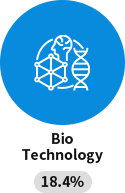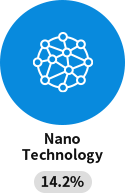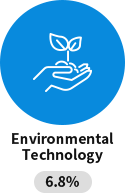
Why KAIST
Discover what makes us outstanding
Why Study at KAIST?
KAIST has made distinguished impacts on academia and industries for the last half-century. KAIST was founded in 1971 and has been a unique cradle for fostering outstanding scientists and engineers. They have contributed to advanced science and technology, innovation, and entrepreneurship and facilitated the Korean economic miracle with a strong foundation in science and technology. Looking ahead to the next half-centrury, KAIST combines excellence in science and research and innovtive history to create value for the world.
A Global Value-Creative Leading University
Our history of innovation and audacious challenge has been marked by intrernational league tables. They are the marks of our collective advancement. Not to mention, our graduate students are at the heart of the excellence.
- Reuters Asia’s Most Innovative Universities 2016 - 2018: 1st
- QS University Rankings by Location 2020: 1st
- QS Top 50 Under 50 Rankings: 2013-2021: 3rd
- QS World University Rankings 2023: 42nd
-
QS World University Rankings by Subject 2022
- Materials Science and Engineering: 20th
- Mechanical Engineering: 22nd
- Chemical and Biomolecular Engineering: 23th
- Electrical Engineering: 23th
- Chemistry: 26th
- Civil and Environmental Engineering: 47th
- Biological Sciences: 51st
- THE World University Rankings - Industry Income: 1st
Research Infrastructure
KAIST Learns and Creates through Research
KAIST learns and creates through research. In 2020, KAIST conducted 646 R&D projects from industries and 1,914 from the Korean government. The overall R&D funds in 2020 reached around USD 365 million. This outstanding achievement came from our active engagements in a wide range of science and technology R&D projects and the strategic support of the Korean government that has spent the highest rate of GDP on R&D in the world in 2021 (statista)
RESEARCH AREAS
KAIST has also ranked #1 in Industry Income Indicator of THE World University Rankings 2022. KAIST published 3,534 articles internationally and domestically in 2020, and 3,128 of them were published in SCI journals. But, the journals are not enough to be the best
Domestic Patent Applications and Registration 2011-2020
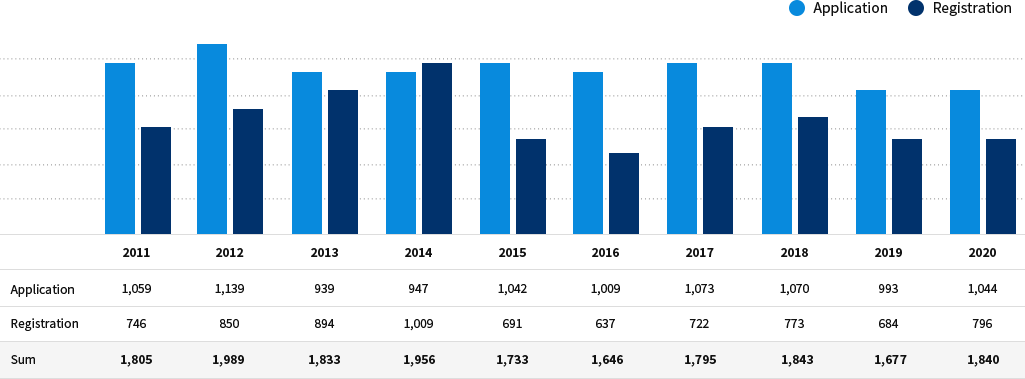
Overseas Patent Applications and Registration 2011-2020
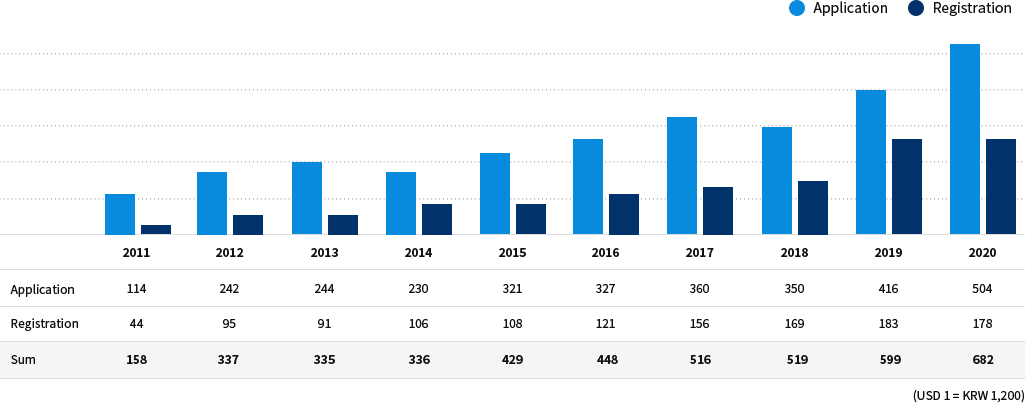
English as the Official Language of Communication
The primary medium of communication on our campus is research. KAISTians gather around the research of interest, learn, challenge, and create through it. However, when it comes to verbal and written communication, English is the official language of communication. Therefore, comprehension of written and spoken English is essential for admission.
KAISTians enrolled in graduate programs don’t need to learn the Korean language to fulfill their graduation requirements. However, you’ll have opportunities to learn the Korean language by taking courses at KAIST language center or through the language exchange programs at KI House. Your Korean language acquisition will make your life at KAIST more colorful and exciting.
Visa(F-2,Visa center)
Recognized Gateway into the Korean Society
KAISTians are acknowledged as the best scientists, and the Korean government supports them in seeking jobs and settlements into the Korean society. The Ministry of Justice has established the Global Talent Visa Center on our main campus to enhance access and convenience of addressing immigration affairs for KAISTians and those scientists and engineers who work in R&D institutes within the Daedeok Innopolis. The center provides KAISTians with the easiest access and best support to handle their immigration affairs.
The Ministry of Justice also expanded settlement opportunities for those who earned graduate degrees at research-oriented universities or research institutes designated by the minister (effective as of December 8th, 2021). Accordingly, those who earned or expect to earn graduate degrees from KAIST and who pass the special internal selection procedures at KAIST are allowed to have expanded opportunities to obtain a long-term residency visa (F-2-7S). Also, those who demonstrate outstanding research outputs and contribute to Korean society can further receive opportunities for permanent residency or Korean citizenship.

